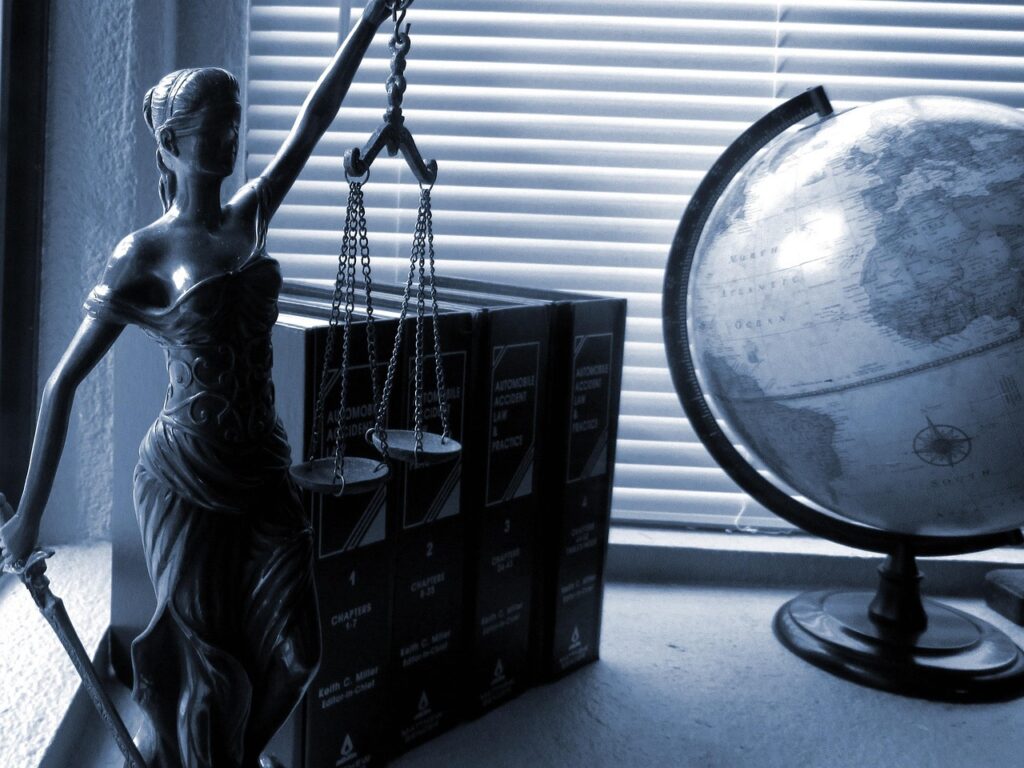Published On: August 11th 2025
Authored By: Shravani Somnath Motgi
School of Law, Mahindra University
Introduction
Space exploration, once the domain of wealthy states, is fast becoming a frontier for corporations as companies pursue projects from satellite launches to space tourism. Several companies, such as SpaceX, Blue Origin, and Virgin Galactic, are breaking new ground in the launching of satellites, space travel, and even a potential base on the moon. This promotional wave creates some pressing legal conundrum, however, while being quite appealing in terms of the technology. Chief among these is how well the existing space-law regime, which was largely constructed during the Cold War, is equipped to govern the aspirations of private entities in outer space.
This article examines the legal architecture governing commercial space exploration, assesses the emerging challenges posed by privatization, and discusses the pressing need for an evolved, harmonized, and enforceable regulatory regime to govern space activities in the 21st century.
Evolution of Space Law: From Sovereignty to Shared Frontiers
The international law of outer space is based on five main United Nations treaties, the most important of which is the Treaty on Principles Governing the Activities of States in the Exploration and Use of Outer Space, including the Moon and Other Celestial Bodies—better known as the Outer Space Treaty (OST) of 1967[1]. The OST has been signed by more than 110 states, all major spacefaring nations, and it provides foundation principles such as the declaration that outer space is the “province of all mankind,” the requirement that outer space is not subject to national appropriation, the requirement that states are internationally responsible for government as well as nongovernment activities in space, and the requirement that the use of outer space is to be for peaceful purposes only. While the OST was revolutionary in setting these international norms, it was drafted in a Cold War environment pervaded by the state and intergovernmental institutions. As a result, it lacks express provisions addressing the role or regulation of private actors in space, a lack that poses deep challenges in the age of today’s fast-changing commercial space environment.
Besides the Outer Space Treaty (OST), the 1972 Convention on International Liability for Damage Caused by Space Objects (Liability Convention) continues to expand state responsibility by imposing strict launching state liability for damage to other space objects inflicted by their space objects, or to individuals or property on Earth. Article VI of the OST [2]is especially noteworthy, which requires states to license and regulate continuously non-governmental space activities carried out within their territory. This article has become a root mechanism through which national governments impose control on private space businesses, practically rendering states intermediaries responsible to the international legal order for the actions of their national commercial space players.
Rise of Private Space Enterprises
Private investment in space has burst onto the scene over the last few decades, reshaping what used to be a state-dominated space frontier into a vibrant commercial space frontier. Commercial satellite services, once the sole preserve of government space agencies, are now a multibillion-dollar global industry. Trailblazing firms like SpaceX have revolutionized launch economics with breakthroughs like reusable rockets, making it much cheaper to access space. Blue Origin is also leading the trend with suborbital flight development in space tourism. Even more ambitiously, private industry is already actively working on asteroid mining, lunar bases, and even interplanetary colonization, particularly on Mars. All of these breakthroughs are driven by increasingly available dual-use technologies and shrinking barriers to entry, making it easier for even smaller nations and private firms to participate in space activities.
However, the accelerated commercialization of space generates a multitude of difficult legal questions that existing frameworks are not equipped to deal with. Control and jurisdictional issues are raised by the ownership of spacecraft by multinational companies or the operation across borders, raising the question of whose jurisdiction has legal jurisdiction. Property rights in space are another contentious question: the validity of private claims over celestial property, e.g., sections of the Moon or asteroids harvested for minerals, is highly contentious under the existing treaty regime. The growing launches also throw into relief the imperative of coordinated space traffic control to prevent the risk of traffic jams and collisions in space. Environmental protection in space is also critical, as over-exploitation or contamination of extraterrestrial environments could be irreversible in terms of impact. Furthermore, the dual-use character of space technology also poses security risks, as commercial entities could unwittingly or knowingly serve as surrogates for the ends of national military goals. In general terms, these issues require careful reconsideration of existing international treaties and the promulgation of sound national legislation responsive to emerging realities of commercial space exploration.
National Legislation and Privatization Push
The international push for commercial space exploration has motivated many nations to establish legislation to govern and promote private sector involvement. The United States has led the way and often acted unilaterally. The U.S. Commercial Space Launch Competitiveness Act of 2015[3] specifically grants American citizens rights to own resources extracted from celestial bodies such as asteroids. This move is viewed as not respecting the Outer Space Treaty prohibition on claiming sovereignty. To further demonstrate its influence, the U.S. launched the Artemis Accords in 2020. These are leader-driven agreements to establish guidelines on lunar exploration, utilization of resources, and safety.
While not binding agreements, the Accords define common international practice and establish norms similar to those adopted by international organizations such as the UN’s Committee on the Peaceful Uses of Outer Space. In accordance with this trend, nations such as Luxembourg, Japan, and the United Arab Emirates have established national laws permitting private ownership of space resources. Luxembourg’s 2017 law, for instance, permits companies to own material mined and grants tax relief to space companies. Japan’s 2021 Space Resources Act is the same principle. Meanwhile, India is gradually moving towards privatization with its IN-SPACE initiative and proposed Space Activities Bill, while being in line with the overall international commitments.
Legal Ambiguities and Interpretative Challenges
One of the most legally contentious areas of space law is ambiguity regarding property rights and liability in outer space. Article II of the Outer Space Treaty (OST) [4]forbids national appropriation of celestial bodies through claim of sovereignty, use, or occupation, but is silent on private ownership of mined resources. This silence has been the subject of conflicting interpretations: while advocates compare mining resources with fishing in the high seas—allowed without sovereignty claims—others contend such activities subvert the OST’s purpose and could set off a lawless gold rush for extraterrestrial resources. Liability is another vague area. States are responsible for harm caused by space objects launched by them under the 1972 Liability Convention[5], and some states require compulsory insurance for private entities. But fault assessment in complicated incidents involving multiple parties or chain reactions—such as those expected in cases like the Kessler Syndrome—is still very difficult. To this is added the lack of legal standards for harm to space environments, such as contamination of celestial bodies like Mars. In addition, with a proliferation of satellite constellations in Low Earth Orbit (LEO), the risk of collisions and resultant debris continues to increase. But there is no comprehensive treaty to specifically address and enforce measures to mitigate space debris, but they are all based on voluntary national or industry-level best practice guidelines, which is clearly a situation that cannot last.
Emerging Norms and Soft Law Instruments
Soft law instruments established by actors such as the UN Committee on the Peaceful Uses of Outer Space (UNCOPUOS) are the primary forces shaping emerging norms in terms of space governance. This effort resulted in a set of non-binding “Long-Term Sustainability Guidelines” in 2019 that will encourage data sharing, measures to address space debris, and participation, and nations’ commitments to working together. Industry-led work, such as from the Space Safety Coalition and CONFERS, is working to establish technical norms and self-regulating arrangements.
However, in the high-stakes global commons environment, reliance on voluntary compliance is a valid concern.
Toward a New Legal Order: Reform Proposals
Change within space law requires creativity alongside practicality. While attempts to change the Outer Space Treaty (OST) are politically deadlocked, an Implementing Rules and Procedures (IRP) approach can governmentally interpret declarations or address frameworks on pivotal matters like space mining or debris circumvention. Something like the International Seabed Authority could act as a sole global supervisory licensing body that would eliminate jurisdictional shopping and guarantee equity for all parties. Moreover, specific judicial relief bodies like a space arbitration tribunal or a chamber of the International Court of Justice could resolve disputes efficiently.
India and the Global South: A Cautious Approach
India’s position in international space law is influenced by its Gaganyaan mission and emerging private space companies. India faces the challenge of balancing national sovereignty with international obligations and commercial interests. India uniquely upholds the notion of space as the common heritage of mankind, which champions multilateralism. The Space Activities Bill introduces concepts of compulsory licensing along with liability and insurance frameworks, which are long overdue. To foster responsible growth, India must promote private sector development while aligning international legal frameworks with national laws.
Conclusion
The future of commercial space exploration is progressing at an extraordinary rate. Unfortunately, the legal rules pertaining to the governance of space remain framed largely within the outdated territory-centric paradigm, which does not adequately address the issues of privatization, resource management, and sustainability. While national laws and bilateral agreements try to fill the void, they are bound to result in a fragmented, chaotic, and inequitable outer space framework. What we truly need is a single international legal framework that is enforceable and usable, allowing the wealth of human imagination and enterprise to flourish. Humans moving into space will warrant new laws, not just to manage its use, but to guarantee that space is a domain for opportunity, justice, and peace for all.
[1] Treaty on Principles Governing the Activities of States in the Exploration and Use of Outer Space, including the Moon and Other Celestial Bodies (adopted 27 January 1967, entered into force 10 October 1967) 610 UNTS 205 (Outer Space Treaty).
[2] Treaty on Principles Governing the Activities of States in the Exploration and Use of Outer Space, including the Moon and Other Celestial Bodies (adopted 27 January 1967, entered into force 10 October 1967) 610 UNTS 205 (Outer Space Treaty) art VI.
[3] US Commercial Space Launch Competitiveness Act of 2015, Pub L No 114–90, 129 Stat 704 (2015).
[4] Treaty on Principles Governing the Activities of States in the Exploration and Use of Outer Space, including the Moon and Other Celestial Bodies (adopted 27 January 1967, entered into force 10 October 1967) 610 UNTS 205 (Outer Space Treaty) art II.
[5] Convention on International Liability for Damage Caused by Space Objects (adopted 29 March 1972, entered into force 1 September 1972) 961 UNTS 187 (Liability Convention).




